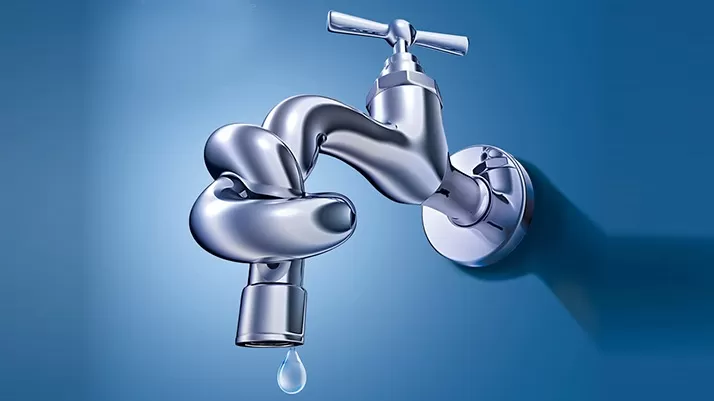Water scarcity is a growing challenge in many regions of the world, especially in agricultural areas, where irrigation is essential for crop productivity. In a scenario where sustainability and efficient use of natural resources are becoming increasingly important, Embrapa, a Brazilian agricultural research company, is presenting an innovative solution that promises to reduce water consumption in crops by up to 70%.

This system not only improves crop productivity, but also contributes significantly to environmental conservation.
How the Embrapa System Works
The technology developed by Embrapa uses a ceramic sensor integrated into a precise drip system to control irrigation. This system was designed to efficiently reduce water consumption. The sensor measures soil moisture levels, providing real-time data on the amount of water required for each area of the crop.
The system's operation is based on a simple principle:
- Dry Sensor: When the sensor is dry, air can pass freely through it.
- Irrigated Sensor: When irrigation occurs, the air passage in the sensor is filled with water, blocking the air flow.
This pneumatic mechanism allows precise measurement of water tension in the soil, automatically adjusting irrigation according to the real needs of the plants, which directly contributes to reducing water consumption in crops.
Benefits of Technology for Agriculture
The main advantage of the system developed by Embrapa is its ability to reduce water consumption by up to 70%. In addition to these significant savings, the system offers several other benefits for agriculture:
- Increased Productivity: The system not only reduces water consumption, but also improves crop productivity by up to 40%. This is because irrigation is precisely adjusted, ensuring that plants receive the ideal amount of water.
- Efficiency in Different Climatic Conditions: The technology stands out for its efficiency both during rainy periods and in dry seasons. This is especially important in regions where climatic conditions can vary drastically.
- Reduced Environmental Risks: By reducing water consumption, the system also helps to reduce the risk of groundwater contamination. This is because less excess water means less likelihood of nutrients and pesticides leaching into groundwater.
- Sustainability and Energy Savings: The system does not require any energy sources to operate, which not only reduces water consumption but also operating costs, making the technology even more sustainable. The absence of the need for electrical energy reduces the carbon footprint associated with the irrigation process.
Partnerships and Recognition
The development of Embrapa’s irrigation system was carried out in partnership with a company from São Carlos. This collaborative effort not only resulted in innovative technology, but was also recognized by the Federal Government, which awarded the company for its significant contribution to innovation in the agricultural sector. The company was chosen as one of the 20 most innovative companies in the country, highlighting the importance and impact of the technology developed to reduce water consumption in agriculture.
Future Perspectives and Commercialization
Although it is not yet available on the market, the sensor developed by Embrapa has already attracted the interest of several entrepreneurs in the agricultural sector. Among them is Sérgio Machado, who is exploring the possibility of adapting the system for use in flower pots. The idea is to use the technology to save water in small quantities, such as the 78,000 liters per month that could be saved with the new dripper, further expanding the capacity to reduce water consumption in different contexts.
The potential commercialization of this technology promises to bring even more benefits to agriculture, expanding access to efficient and sustainable irrigation methods. Embrapa continues to work on partnerships and projects to bring this innovation to the market, promoting more sustainable agriculture with a lower environmental impact, always focusing on reducing water consumption.
The irrigation system developed by Embrapa represents a significant advance in the way water is used in agriculture. By reducing water consumption by up to 70%, the system not only improves crop efficiency and productivity, but also contributes to the conservation of natural resources and the protection of the environment.
With the recognition of technology and growing interest in the sector, innovation has the potential to transform the way irrigation is carried out throughout the country. Embrapa's technology is an example of how research and innovation can come together to address environmental challenges and promote more sustainable agricultural practices, always seeking to reduce water consumption.
Check out other interesting facts about recycling clicking here.
Learn how to make art by recycling, Click here.




What is the date of this publication? It would be good to make it clearly visible because we don't know if there were any developments later. It makes it easier to stay up to date.
Katia, this article was published on March 18, 2014. For technical reasons, the publication date is not available. I count on your understanding.